Updated 3/3/24
So, the EHRC’s reaccreditation by the UN is all over, and GANHRIGANHRI The Global Alliance of National Human Rights Institutions brings together and supports national human rights institutions to promote and protect human rights Global Alliance of National Human Rights Institutions https://ganhri.org , the international accreditation body for National Human Rights Institutions (NHRIs) has released its report.
Let’s take a look at it and see what it means – especially in regard to the submission we made as to their multiple failures for the trans community, and then we can look at where the EHRC are now.
Notes on Reaccreditation & Context
There’s a couple of things in terms of context that are worth getting out of the way before we delve into the meat of the report itself. The report can be found here.
- While the EHRC was supposedly on the reaccreditation committee, the report clearly notes that Greece substituted for Great Britain when evaluating the EHRC, removing a major conflict of interest in the process (Section 1.2).
- While the EHRC trumpeted its retention of A status all over Twitter, it neglected a few key points.
- All of the countries up for reaccreditation retained A status, so Great Britain is up there with El Salvador, Cyprus, Colombia and Sierra Leone. Not much to brag about there.
- In terms of the sheer number of recommendations, Great Britain had the most made against it, sharing a grand total of seven major recommendations alongside El Salvador, showing just how far Great Britain has sunk as a supposed ‘first world’ nation. Most of the other countries had two recommendations.
- The report references several other GANHRI documents, notably the Paris Principles, General Observations and GANHRI Statute, all of which are useful to link here as they provide additional info, although the report often reproduces the relevant sections for clarity.
- One final note to make is that the report is written in rather diplomatic language, so we’ve added emphasis where relevant in quoting the report.
What does GANHRI expect when it makes ‘recommendations’?
This is covered in Sections 1.13 – 1.24 of the report, but the most pertinent are 1.13 and 1.14, which state :
1.13 The SCA notes that when specific issues are raised in its report in relation to accreditation, re-accreditation, or special reviews, NHRIs are required to address these issues in any subsequent application or other review.
1.14 The SCA wishes to highlight its expectations that all NHRIs will take the necessary steps to pursue continuous efforts at improvement and to enhance effectiveness and independence, in line with the Paris Principles and the recommendations made by the SCA. Failure to do so may result in a finding that a NHRI is no longer operating in compliance with the Paris Principles.
Diplomatic language aside, what this effectively means is that the ‘recommendations’ are things that the EHRC must take action to change, and that the recommendations have been made by committee members independent of the EHRC, based on submitted evidence from both the EHRC and other civic bodies.
GANHRI’s ‘Recommendations’ for Great Britain
OK, so let’s take a look at what GANHRI are expecting the EHRC to change, or to take steps to change. I’m going to focus mainly on how this interacts with the submission we made from Steph’s Place UK and the impact on the trans community, but may touch on other areas if it’s applicable.
Great Britain’s reaccreditation is covered in Section 2.4 of the report, so let’s take a look at each ‘recommendation’
1 Human Rights Mandate
This starts off by calling out the clear failure of the EHRC to fully implement Section 28(8) of the Equality Act 2006 in relation to legal assistance for diabled people. Pretty damning given its been in legislation for 16 years.
The next bit is interesting however, stating
An NHRI’s mandate should be interpreted in a broad, liberal and purposive manner to promote a progressive definition of human rights which includes all rights set out in international, regional and domestic instruments, including economic, social and cultural rights.
And it then goes on to state the relevant Paris Principles and General Observations.
What this effectively means is that GANHRI have given the EHRC a major dressing down by reminding them of their role and responsibilities. The EHRC are not liberal, nor progressive, and have failed to adhere to international instruments as well as the relevant principles.
Our submission made this failure clear through their collusion with trans hostile hate groups as well as other significant evidence, such as actively working on legal cases to remove trans rights and healthcare.
2 Addressing Human Rights Issues
GANHRI continues to dress down the EHRC in this section.
It starts with:
The SCA acknowledges the concerns raised by several civil society organisations and in public records on the will of the EHRC to effectively and independently address human rights issues, including the rights of LGBTI people…
Let’s translate that, but even in diplomatic language – that had to hurt
GANHRI are basically noting that lots of organisations made submissions about the EHRC’s multiple failures. We would note that in ours we specifically highlighted numerous ‘public records’ where the EHRC displayed massive bias and conflict of interest in relation to trans people, so it’s good to see this has been noted and responded to.
It continues with :
The SCA is of the view that it is vitally important that all the findings and recommendations of the NHRI be publicly available as this increases the transparency and public accountability of the NHRI.
This also appears to be a direct reference to our submission, where we noted that the EHRC had been highly obstructive in obtaining information via Freedom of Information Act requests, in an apparent attempt to hide their ongoing conflicts of interest and collusion with trans hostile groups and individuals. All of which were heavily evidenced in our submission.
It doesn’t stop there though. GANHRI then repeat the reminder of the EHRC human rights mandate from recommendation 1 again, and then go further, stating :
NHRIs are expected to promote and ensure respect for all human rights, democratic principles and the strengthening of the rule of law in all circumstances, and without exception.
GANHRI would not so forcefully remind the EHRC of their mandate in such a way if it wasn’t for our submission, which detailed extensively their bias against the human rights of trans people, alongside the submissions of so many other groups such as those representing disabled people,travellers, immigrants, asylum seekers and refugees.
3 Cooperation with civil society organisations
This recommendation is yet another reminder of the EHRCs obligations. It gets really interesting near the end however.
The SCA recommends that the EHRC take visible and clear steps to strengthen its working relationship with civil society organisations, including organisations that work to promote and protect the human rights of LGBTI people…
This appears to be a direct reference to our submission again, which noted extensively how the EHRC had sidelined Stonewall at the behest of Liz Truss, and completely failed to engage with a single trans organisation in compiling and presenting a board briefing on ‘Transgender Issues’, as well as in other areas such as the unlawful ‘Single Sex Spaces Guidance’.
Yes, the EHRC completely excluded trans groups and people from discussions about our rights, but instead directly solicited submissions from anti-trans groups. The only submission made for this ‘board briefing’ from an LGBTQLGBTQ LGBTQIA+ is an inclusive term that includes people of all genders and sexualities, such as lesbian, gay, bisexual, transgender, questioning, queer, intersex, asexual, pansexual, and allies. While each letter in LGBTQIA+ stands for a specific group of people, the term encompasses the entire spectrum of gender fluidity and sexual identities. https://abbreviations.yourdictionary.com/what-does-lgbtqia-stand-for-full-acronym-explained.html https://en.wikipedia.org/wiki/LGBT+ group was from Stonewall, which the EHRC ignored completely before sidelining Stonewall entirely.
They then continue to ignore trans and LGBTQ+ groups altogether. We’ve been trying to get a meeting with them for months, and keep getting the brush off.
This recommendation then finishes by reminding the EHRC once again of its obligations under the relevant Paris Principles and General Observations – reinforcing the fact that they have effectively destroyed their reputation and credibility with LGBTQ+ groups and are acting in isolation.
In short – this recommendation is GANHRI telling the EHRC that they’ve operated in an exclusionary and discriminatory way, and that they need to rectify that immediately.
4 Pluralism and Diversity
This recommendation is again GANHRI telling the EHRC that they are not representative of the communities they are supposed to protect – that they are not diverse enough to fulfill their role effectively, and that they need to change that.
5 Selection and Appointment Process
This section is pretty damning. GANHRI states :
The SCA is of the view that the process currently enshrined in the Law is not sufficiently broad and transparent. In particular, it does not:
– require the advertisement of vacancies;
– establish clear and uniform criteria upon which the merit of eligible applicants is assessed; or
– promote broad consultation and / or participation in the application, screening, selection and
appointment process.
Followed by
A process that promotes merit-based selection and ensures pluralism is necessary to ensure the independence of, and public confidence in, the senior leadership of an NHRI.
In other words this directly relates to the fact that the Commissioner & Chair appointment processes are politically influenced, again something we extensively pointed out in our submission. Both appointment and reappointment processes are opaque, and do nothing to prevent conflicts of interest.
It also clearly states that the EHRC is clearly not viewed as independent, and has completely lost the confidence of the communities it is supposed to protect.
6 Dismissal
On the face of it, this appears to allow the continued embedding of biased commissioners, making it more difficult to get rid of them, which appears to be somewhat disappointing given how it is currently ideologically compromised.
However, when taken with the recommendations in 5, instituting a more transparent and robust selection and recruitment process, this would help to ensure that the right people are both appointed and retained in the future.
So it’s going to be interesting to see which the EHRC changes first. We suspect it will be this one to try and protect the in-house opposition to trans people.
7 Financial Autonomy
This one’s actually pretty easy and one I agree with – GAHNRI has effectively stated the EHRCs budget, like its appointment process, is dependent on political whim and that needs to change.
In the long term, this would ensure that the EHRC can operate independently of the government and in accordance with its human rights mandate.
Conclusions
This report does not make for kind reading for the EHRC. You don’t have to look far beyond the diplomatic language and the recommendations by GANHRI aren’t just damning, they’re absolutely savage.
Let’s recap. The EHRC have been :
- Forcefully, repeatedly reminded of their human rights mandate and obligations.
- Lambasted for their repeated failures in marginalising trans & LGBT groups, and by extension those communities.
- Told that they’re not diverse enough to effectively fulfil their role
- Told that the selection & appointment process is opaque, subject to political interference, ideological bias and conflict of interest.
- Told their budget and funding is not independent enough
- And as a result of all of those that they’re clearly not independent, acting independently, nor in ways that uphold their international human rights obligations nor standards.
All concerns that they must address.
And in fairness, they already appear to be already trying to do so, with disastrously predictable results from doing it all backwards and appearing to only pay lip service to the GANHRI recommendations.
They recently tried to ‘support’ the trans community at the start of Trans Awareness Week by reminding the world at large of the fact we are protected under EA2010 – only to be savaged in response by the trans community. In the linked twitter post the EHRC can’t even be bothered to link to the relevant section of the Equality Act, so it seems clear they’re only going through the motions.
In order for the EHRC to be taken seriously as a real human rights body again, especially by the trans community, it needs to rebuild trust and credibility. Unfortunately, they’re still doing precisely the opposite – and we’re documenting everything in preparation in case we need to submit to the UN for a special review, should they continue to fail the trans community.
Because you’re not going to rebuild trust with a Chair and a Board of Commissioners (all appointees), some of whom who have links to the religious right, the far right, anti-lgbt groups and anti-trans groups, and who are allowed to pursue activities in direct conflict with their role as commissioners. And they do so largely in the open without fear of repercussions.
Addressing the situation with an ideologically biased board of commissioners and chair is the starting point, as we’ve said all along. If they had a shred of integrity, they’d resign.
So, will they listen and change, or will they have change forced upon them?
Has anything changed?
As the EHRC will be subjected to a special review by the United Nations in the session held between 29 April and 3 May 2024, I thought it would probably be a good time to have look through their published information to see if they’ve actually done anything in relation to the recommendations laid out by GANHRI in November 2022.
Any changes at the EHRC as a result of GANHRIs recommendations would have to be implemented and agreed by the EHRC Board of Commissioners and Chair, so the best place to start would be the published board minutes. Its also worth noting that as of the time of writing this, the minutes for the January board meeting have still not been published.
Anyway, The short version is that the EHRC do not appear to have implemented a single recommendation as yet. Not one.
I went through every board minutes from October 2022 to November 2023, and here’s what I found.
October 22, Section 7 – start of an internal paper of recommendations & publish a letter to the Sub-Committee on Accreditation. Unlike other letters to the SCA, this one was not placed into the public domain.
January 2023, Section 4 – indicates 3 areas the previously mentioned paper found action points on. Financial, updating the Framework document, and action on secondary legislation in relation to powers. Which is curious because as you can see from above, the 3rd item wasn’t actually a recommendation area.
November 2023, Section 9 – not actually related to the original review recommendations, but concerned with the special review, so not relevant.
So, in the almost 18 months since their reaccreditation, the EHRC have not implemented a single recommendation from GANHRI. The only area they taken any action on is in relation to supposed financial autonomy, and that was basically a letter.
In fact, the opposite appears to have happened, in that, as expected – they’ve accelerated and doubled down on their activities targeting the exclusion of trans people in the UK.
More detailed follow up articles on other activities will be forthcoming, but in short :
The known, most vociferous trans hostile commissioners on the Board, Alasdair Henderson and Akua Reindorf, appear to be running the show rather than the Chair, Kishwer Falkner. These two are involved in every activity that even tangentially impacts transgender people.
The complete lack of independence at the EHRC continues, with the UK Government continue to abuse the appointments system, with the anti-trans ‘Minister for Women and Equalities’ Kemi Badenoch, who was recently exposed for lying in Parliament about meeting with LGBT groups in relation to the continually failed ban on Conversion Therapy, appointing new commissioners to the main Board as well as the Scotland Committee.
On the main Board she appointed Joanne Cash, who according to the EHRC Board Minutes in March 2023 has personal ties and support to Badenoch.
On the Scotland Committee she appointed Adam Tomkins, a former Scottish Conservative, and Mandy Rhodes of Holyrood Magazine, among others. Holyrood Magazine has been noted by ourselves and in our previous submissions to GANHRI as being both anti-trans and a staunch supporter of of Falkner.
In various workstreams around multiple aspects of guidance and upcoming Government Bills that would require stakeholder consultations, such as the Online Safety Bill, Guidance for Schools on Transgender Pupils and others – not a single trans specific organisation has been consulted with by the EHRC on potential impacts.
In other words, the EHRC continue to fail those they are supposed to protect, and appear to be acting as a puppet organisation for the UK Government in its culture war against transgender people.




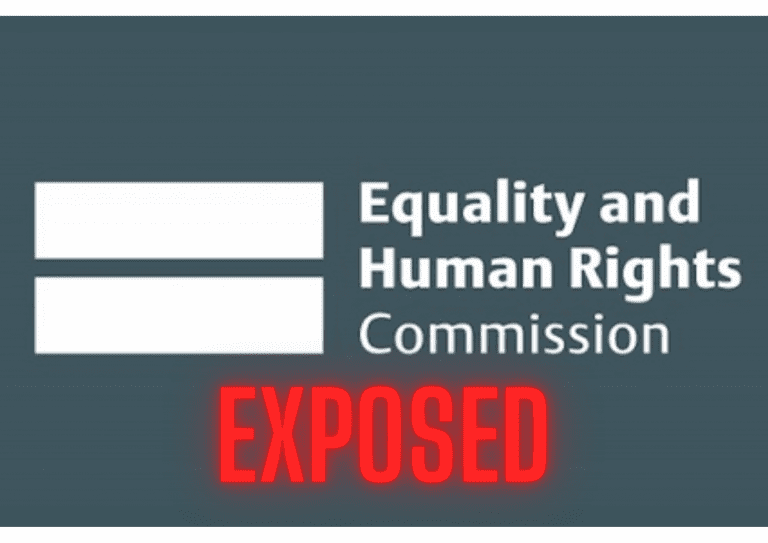
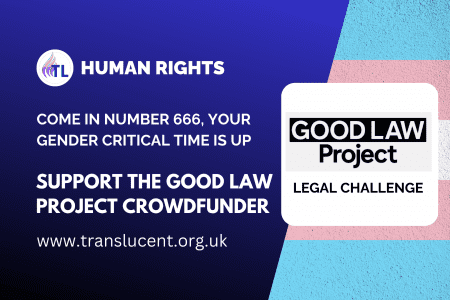
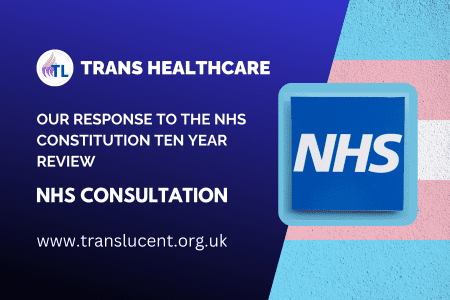
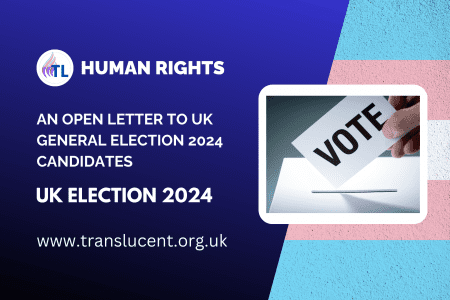
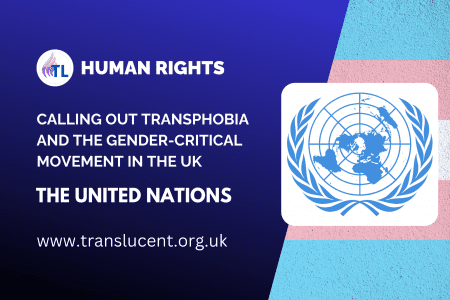
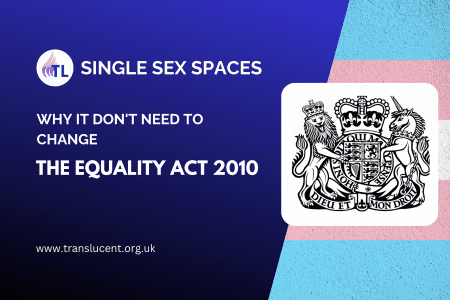
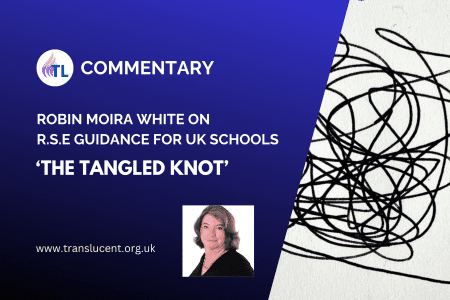
 To provide the best experiences, we use technologies like cookies to store and/or access device information. Consenting to these technologies will allow us to process data such as browsing behaviour or unique IDs on this site. Not consenting or withdrawing consent, may adversely affect certain features and functions.
To provide the best experiences, we use technologies like cookies to store and/or access device information. Consenting to these technologies will allow us to process data such as browsing behaviour or unique IDs on this site. Not consenting or withdrawing consent, may adversely affect certain features and functions.